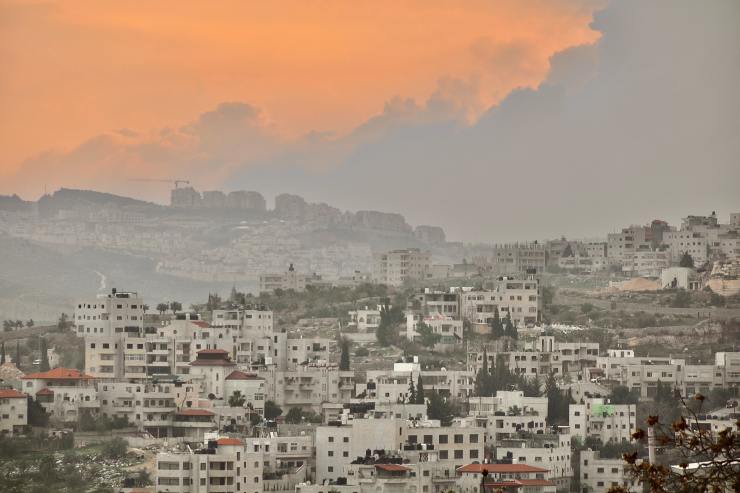
As Christians all over the world prepare to celebrate the birth of Jesus, people in Bethlehem are struggling to cover their medical needs, including new mothers, Friends of the Holy Land (FHL) has warned.
The birthplace of Jesus is entering its second year with barely any tourists as a direct consequence of the pandemic.
The past 20 months have been particularly difficult for those families who work in the tourism and pilgrimage industry, many of whom are Christian.
Since there is no financial support scheme in place, these families have been left without any means of income.
With savings running dry, many people are now buying food on credit or relying on friends and foodbanks for support, says Brendan Metcalfe, Executive Director of FHL, which is providing grants to Christian families to see them through the hardship.
Apart from costs related to food and essential needs, medical expenses have become a major concern for families in Bethlehem.
The ecumenical charity, which is registered with the Palestinian Authority, has seen an increase in the number of people seeking its support for medical costs, including medical bills for new or expecting mothers.
"The total collapse of the tourism industry in the place where Jesus was born has left mothers filled with anxiety," says Metcalfe.
"A regular hospital birth means a bill of around £360, or £800 for a straightforward caesarean - these figures are way out of reach for the vast majority of families."
Samer Abu Hanna is one of many people who have been affected in this way by the pandemic. He used to show visitors around Bethlehem's Church of the Nativity, but after a year with no tourists, the family began to fall behind on rent, electricity and food bills.
At the same time, his wife Mary was pregnant, giving rise to concerns about how the family would be able to meet the cost of the baby's delivery and ante-natal care.
In the end, when the baby arrived in the autumn, his wife needed not only a caesarean section but also a hernia operation, with the medical bill coming to £1,200 – almost three times the family's monthly income.
FHL helps around 30 to 40 people every month, and currently employs two local Christian women as social workers to support emergency needs.
The charity's monthly budget for emergency cases is now at its highest-ever, at £9,000 due to a surge in people seeking support from the charity.
"This number is increasing, mostly due to those who approach for help with the cost of one-off medical procedures and ongoing needs for the cost of medication for chronic conditions," says Metcalfe.
"Every week, our Holy Land office hears more stories of people needing urgent treatment – from dentistry to cancer – that they simply can't afford.
"These Christian families who live in such an unstable land have been left with next to nothing since Covid shut their livelihoods down."
Another area of concern is the elderly women whose families have emigrated. Without any or very little pension, they struggle to make ends meet. FHL runs a day centre to support them.
As a registered charity, FHL can hold a local bank account which enables it to pay people directly or pay schools, pharmacies, or hospitals for people's treatments.
"In this way, we can track exactly how our donors' funds are used," says Metcalfe.
Apart from donating to FHL and supporting its Christmas appeal, he says Christians can help by praying for peace in Bethlehem and not only in this immediate crisis but in the long term.
"The sad thing is that financial difficulties are not the only challenge that the people in the Holy Land are facing. They are still living under occupation and there are still restrictions on travel."
He also encourages Christians to travel to Bethlehem in the future and visit Jesus' birthplace.
"It is sad that so many Christians are not aware of the situation of their brothers and sisters in the Holy Land.
"Especially in the UK, we seem to have lost that commitment to visit at least one time and see where Jesus walked, conducted his ministry, died and resurrected."
For the past 20 months, FHL's primary focus has been the provision of emergency support. Looking ahead, Metcalfe hopes that over the coming 12 months the charity will be able to work more on projects that are aimed at "sustaining" the Christian community in the Holy Land.
"These projects seek to inspire young people to go to college and learn a vocation, mentor them with building businesses and help them repair their houses," he says.
"We also want to help them build a family and stay in the Holy Land. We want to give them comfort that they can live, work and survive where they are now and that they do not need to emigrate.
"Help us build hope where Hope was born!" he adds.
Re-published from the Christian Today UK.




